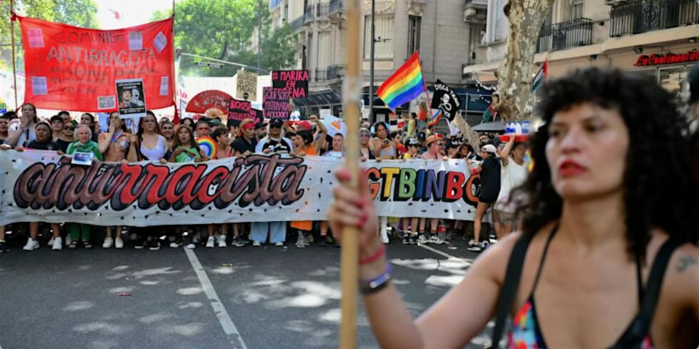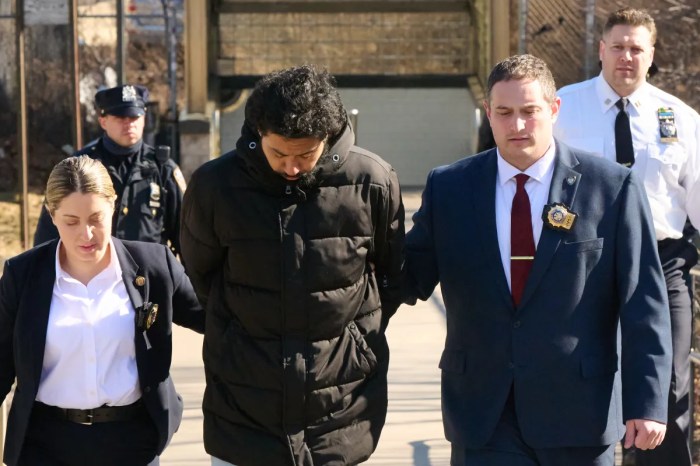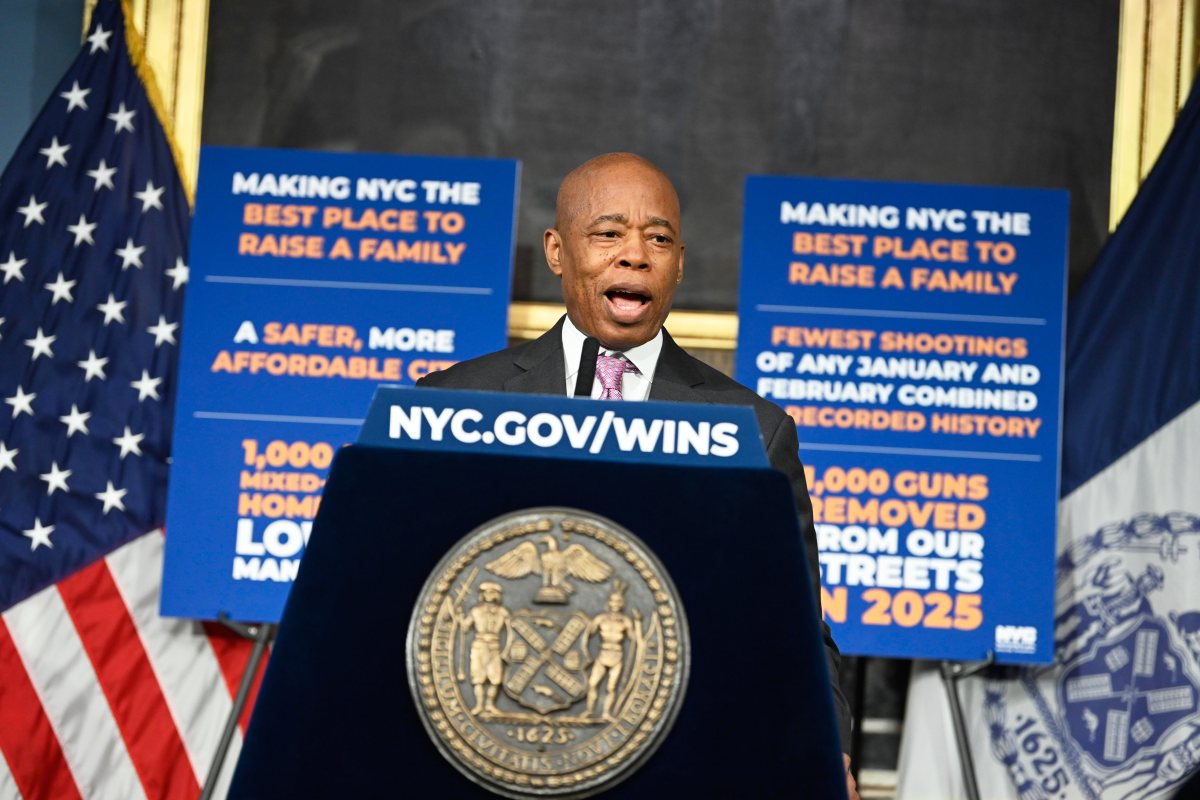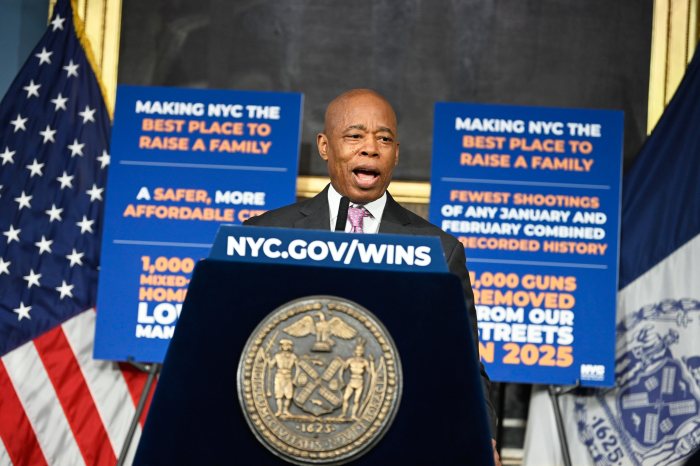Whether or not he figured his taking the reins in New York to have such broad political reach, the new mayor has found himself almost immediately propelled into being the national face of progressivism. It is to Bill de Blasio’s credit that he has all along not been the least bit shy about baring his progressive/liberal orientation and proclaiming his intention to pursue policies faithful to that identity. In so doing, the mayor comes off as somewhat of a maverick, bucking a trend that has seen so many players, even ones purportedly of liberal bent, shun the label as something toxic for quite a while now, clearly in the interest of political survival.
In his bold stand as an unreconstructed progressive, de Blasio has set himself up for a torrent of criticism of his every move, most assuredly from sources on the right. On the “Face the Nation” program on CBS last Sunday, conservative frontliner Peggy Noonan evidently couldn’t contain her delight at being presented a de Blasio-bashing opportunity, taking it way over the top to describe the mayor as a “former Sandinista.” Instant querying of that wild characterization from a startled host Bob Schieffer elicited from Noonan some muddled modification of her original jibe.
If de Blasio’s demeanor since winning the mayoralty is any guide, he’s not about to be fazed by such thrashing of where he’s coming from. He used the occasion of his inaugural address New Year’s Day to reaffirm that his commitment to adhere to a progressive agenda wasn’t just campaign rhetoric. “When I said I would be taking dead aim on the tale of two cities, I meant it,” de Blasio reassured his audience, invoking the campaign theme that was the cornerstone of his pitch to voters, culminating in his lopsided victory last November.
A focus on income inequality and, with it, an objective of all New Yorkers earning a decent living wage; a tax on the city’s wealthiest that would be specifically designated for extended Pre-K and after-school programs; reform of what de Blasio called “a broken” stop-and-frisk program; ensuring basic worker benefits like paid sick leave; addressing an alarming number of hospital closings that compromise healthcare services in vulnerable communities – those familiar talking points repeatedly enunciated by de Blasio during the campaign will be priority issues for his administration, the mayor insists.
In using his inauguration to set the tone for the new direction he would be taking at City Hall, de Blasio pulled out all the stops, making sure that the optics, in particular, left no doubt as to how much of a break from the norm he intended to be. Helping to convey this were the presence of Harry Belafonte as an honored guest; rendition of a poem that emphasized underclass New York, as opposed to the gilded one the establishment favors; and hip DJ music supplanting the formal pomp and circumstance trappings of such occasions. It was a notable departure, too, for a young Latino Medgar Evers College student to be assigned the responsibility of introducing former President Bill Clinton, after telling her immigrant family’s story of tenacity and determination.
Thanking Clinton, who administered the oath of office to him, de Blasio noted that the former president “broke through” a couple of decades ago when a conservative wave seemed to be sweeping the country. Clinton did indeed strike a significant blow against the country’s Reagan-led conservative thrust when he defeated Reagan’s former vice president, George H.W. Bush, in 1992. But, sensitive to the backlash potential of full-throttle social and fiscal conservative messaging, Clinton skillfully refrained from going the in-your-face liberal route, choosing instead to accentuate the “new Democrat” model that had boosted his ascendancy in the party and secured his nomination. While, as president, Clinton undoubtedly pursued a center-left agenda, his term was not without actions that riled the liberal wing, his championing of welfare reform one policy item always cited by liberal detractors. Fast forward to today’s Washington and the pattern doesn’t change. President Obama clearly sidesteps any labeling of himself as dyed-in-the-wool progressive/liberal, notwithstanding policies that place him in that camp. Of course, not to be deterred, right-siders’ frequent resort to the “socialist” tag for the president is also in today’s tapestry, but we’re well attuned to the racist impetus driving so much of that.
Although the conservative cause suffered a deflating setback with Barry Goldwater’s humiliating defeat by Lyndon Johnson in 1964, it was no knockout punch for the movement. There was no let-up in the promotion of conservative values, aided not insignificantly by the religious right’s push to greater influence in the political tug-of-war. And at the top, Johnson’s being succeeded by Richard Nixon, followed 12 years later by the start of Reagan’s eight-year turn, made the liberal brand even more of a sideline oddity. At the state level, the country is now awash with governors and others unapologetically hewing to policies designed to appease a conservative base.
Against this backdrop comes Mayor de Blasio, gathering his troops under a banner that reads: “Proudly Progressive.” There’s no telling how much of the mayor’s ambitious goal of transformative programming for the city culture will be do-able. There’s no doubt that pushback will be formidable, even fierce. But for where he stands today, applause is already earned as a truly gutsy player in the arena.






















